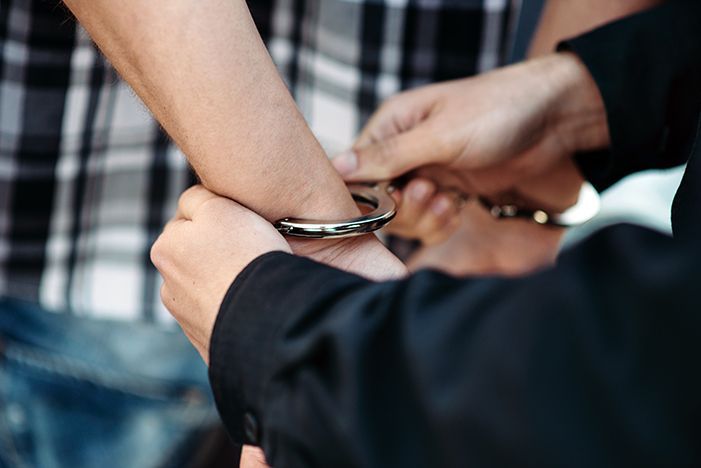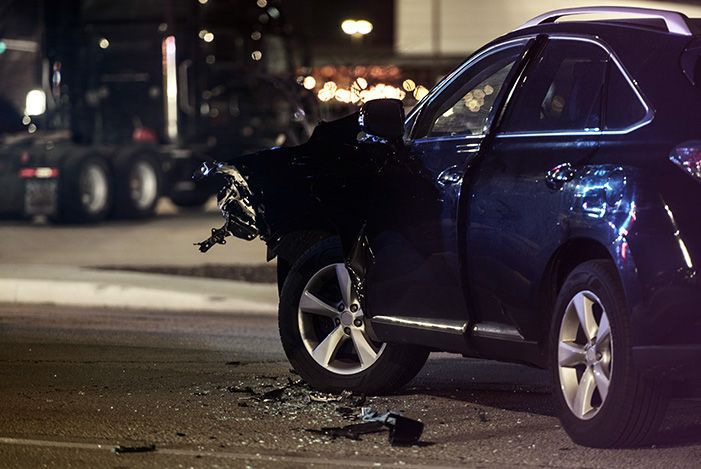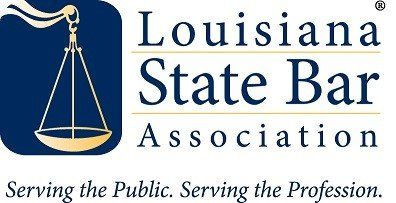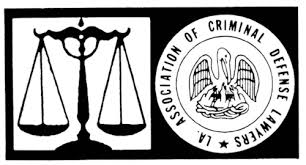Louisiana Domestic Violence Laws Explained

Domestic violence is a serious issue that can have devastating consequences for victims, their children, and the community as a whole. Louisiana law recognizes the severity of domestic violence and provides a legal framework to protect victims and hold offenders accountable.
This article will explain the key aspects of Louisiana's domestic violence laws.
What is Considered Domestic Violence in Louisiana?
Louisiana law defines domestic abuse broadly to encompass a range of physical, emotional, and psychological acts committed by one household member against another household member. This includes, but is not limited to:
- Intentional use of force or violence committed
- Threats of violence committed
- Intimidation
- Stalking
- Isolating the victim from friends and family members
- Controlling behavior
- Verbal abuse
Who is Protected Under Domestic Violence Laws?
Louisiana's domestic violence laws protect a wide range of individuals, including:
- Spouses (current or former)
- Dating partner (current or former)
- Parents and children
- Siblings
- Former spouses parents children
- Persons who have a child in common (regardless of marital status)
- Foster parents and foster children
- Household member who is presently or formerly living together in the same residence
Domestic Abuse Battery
Domestic abuse battery, the most common domestic violence charge, occurs when one household member intentionally uses force or violence against another household member. This can include hitting, kicking, grabbing, shoving, or any other physical act that causes harm.
The law also considers burning inflicted on a household member as domestic abuse battery, with increased penalties imposed pursuant to conviction for causing serious bodily injury.
Penalties for Domestic Abuse Battery
The penalties imposed pursuant to conviction for domestic abuse vary depending on the severity of the offense and the offender's criminal history:
- First Offense: A first-time offense is a misdemeanor punishable by up to six months in jail, a fine of up to one thousand dollars, or both. At least forty eight hours of the sentence must be served without the possibility of parole or suspension of sentence. The offender may also be required to complete mandatory domestic violence counseling or batterer intervention programs, which may include community service activities like facilitating batterer intervention groups.
- Second Offense: A second offense can result in a jail sentence of up to one year and a fine of up to two thousand dollars. With a prior conviction, the offender must serve thirty days without the possibility of parole probation or suspension.
- Third Offense: A third offense is a felony punishable by imprisonment with hard labor for not less than two years nor more than five years, and a fine of up to two thousand dollars. At least one year of the sentence must be served without the possibility of parole probation or suspension.
- Fourth or Subsequent Offender: A fourth or subsequent offense involving serious bodily injury is a felony punishable by imprisonment with hard labor for not less than ten years nor more than thirty years without benefit of parole probation or suspension of sentence. If the fourth offense occurred within ten years of the prior conviction, the offender must serve a minimum of five years.
The penalties imposed pursuant to conviction can be enhanced if the domestic abuse battery involved strangulation, a dangerous weapon, or was committed in the presence of a minor child under the age of thirteen years.
Child Abuse and Domestic Violence
If domestic abuse occurs in the presence of a minor child thirteen years old or younger, the offender may also face child abuse charges under Louisiana law. This is considered a form of child endangerment. In some cases, the minor child may be removed from the home where the child presides and placed in protective custody.
Suspension of Sentence for Domestic Violence
The court may order a suspension of sentence for a domestic violence offense on the condition that the offender completes a batterer intervention program and complies with other court-ordered conditions, such as substance abuse treatment. This allows offenders an opportunity for rehabilitation while still holding them accountable for using force or violence.
Protective Orders
Victims of domestic violence can also seek a protective order from the court. A protective order is a court order that prohibits the abuser from contacting or harming the victim. It can also order the abuser to stay away from the victim's home, workplace, and child's school. A protective order can last for up to eighteen months and can be renewed for up to thirty years.
Obtaining a Protective Order
To obtain a protective order, the victim must file a petition with the court alleging that the respondent has committed domestic abuse and that the petitioner fears for their safety. The court will hold a hearing to determine whether to grant the protective order.
Violation of a Protective Order
Violating a protective order is a criminal offense in Louisiana. A first violation is a misdemeanor punishable by up to six months in jail and a fine of up to one thousand dollars. Subsequent offenses are felonies punishable by imprisonment for at least fourteen days and up to two years and a fine of up to one thousand dollars.
Additional Provisions Related to Domestic Violence
Louisiana law includes several additional provisions related to domestic violence:
- Firearm Restrictions: A person convicted of domestic abuse or who has a protective order against them may be prohibited from possessing a firearm for up to ten years. Law enforcement can temporarily seize any firearms in the possession of the abuser during a domestic violence incident.
- Confidentiality of Police Reports: Police reports related to domestic violence are generally confidential. However, there are some exceptions, such as if the report is needed for law enforcement purposes or if the victim requests that the report be released.
- Cost Incurred by Victim: The court may order the abuser to reimburse the victim for any cost incurred as a result of the domestic violence, such as medical bills for emergency treatment room visits or a stay in a state operated hospital, counseling and property damage.
- State-Funded Shelters: Louisiana has a network of state-funded shelters that provide safe haven and support services to victims of domestic violence and their children. These shelters are run by the state or similar political subdivisions.
- Sexual Assault and Domestic Violence: Acts of sexual assault can be a form of domestic violence when committed by a spouse, intimate partner, or dating partner. This includes sexual battery, rape, and other forms of non-consensual sexual contact.
- Mandatory Reporting: Certain professionals, such as health care providers, mental health counselors, and teachers, are required by law to report suspected cases of domestic violence. Failure to report can result in criminal penalties.
Seeking Help for Domestic Violence
If you are experiencing domestic violence, there are resources available to help you. You can call the National Domestic Violence Hotline at 1-800-799-7233 or visit their website for confidential support and information on local resources. You can also contact a local domestic violence shelter or advocacy organization.
What to Do During a Domestic Violence Incident
If you are in immediate danger, call 911. If you are not in immediate danger, but you believe you are a victim of domestic violence, here are some steps you can take:
- Develop a safety plan that includes how to escape a violent situation and stay safe afterwards.
- Collect evidence like pictures of injuries, reports, medical records from emergency treatment rooms or a state operated hospital, and protective orders.
- Tell a trusted family member, friend, or clergy member about what is happening.
- Contact a domestic violence shelter or advocacy organization for support and resources.
FAQs About Louisiana Domestic Violence Laws
What constitutes domestic abuse under Louisiana law, and who is considered a household member?
In Louisiana, domestic abuse is defined as the intentional use of force or violence committed by one household member against another household member. A household member includes family members, spouses, dating partners, and any person presently or formerly living in the same residence, such as a foster child. Domestic abuse can occur between individuals who have a child in common, regardless of whether they have ever lived together in the same residence.
How does an earlier conviction impact the penalties for a fourth or subsequent offense of domestic abuse battery?
If a person is convicted of a fourth or subsequent offense, and the earlier conviction occurred within the last ten year period, the offender faces significantly enhanced penalties. In such cases, the offender may be sentenced to imprisonment with hard labor for not less than 10 years and up to more than thirty years, without the benefit of probation, parole, or suspension of sentence. This heightened penalty reflects the severity of repeat offenses and aims to protect victims from further harm.
What additional penalties may be imposed if domestic abuse is committed in the presence of a minor child under thirteen years old?
When a court determines that an act of domestic abuse is committed in the presence of a minor child thirteen years of age or younger, the offender may face additional penalties. The court may consider this as an aggravating circumstance, potentially leading to increased fines, longer prison sentences, or mandatory participation in intervention programs.
If the offense occurred within the presence of a child, the incident of domestic violence can have lasting psychological and emotional impacts, and Louisiana law recognizes the need to protect children from exposure to such abuse.
How does Louisiana law address domestic abuse battery that results in serious bodily injury requiring emergency medical treatment?
If a domestic abuse battery incident results in serious bodily injury to the victim, requiring emergency medical treatment that prevents the victim from returning to work for thirty eight-hour days (the equivalent of 8-hour workdays), the offender may face enhanced penalties. In such cases, the offense may be charged as a felony, carrying the possibility of increased fines and longer prison sentences. This provision acknowledges the severe physical and financial toll that domestic violence can take on victims and seeks to hold offenders accountable for the harm caused.















